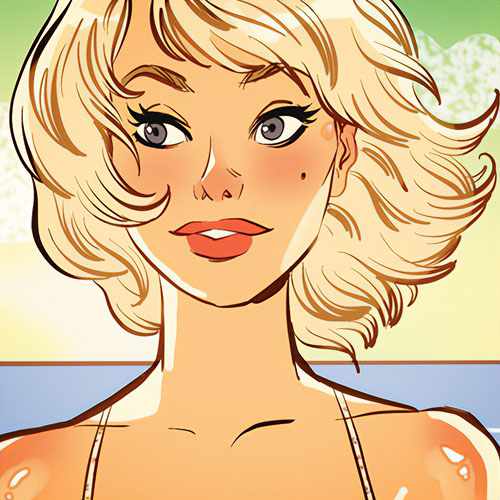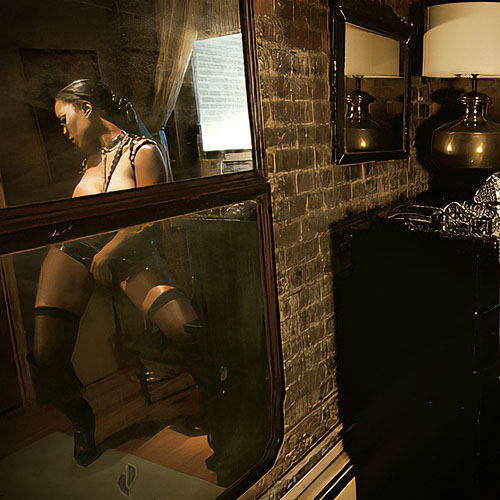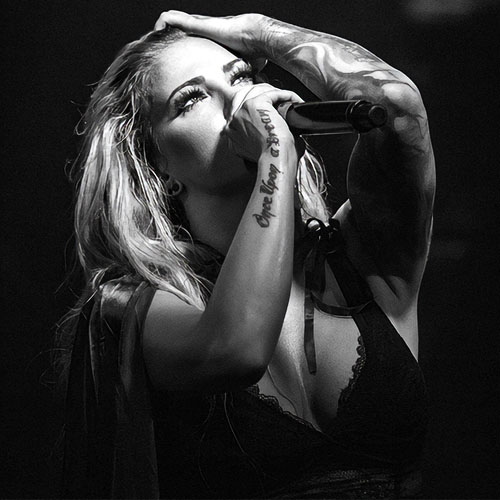In his book Dopeworld, author and ex-dealer Niko Vorobyov crisscrosses the globe chasing narco-stories.
Drug Lands
Driven to get a deeper understanding of the global narcotics scene, Niko Vorobyov hit 15 countries on five continents, talking to everyone from a Japanese yakuza hit man to cartel leaders in Mexico and Columbia. A former drug dealer himself, Vorobyov chronicles his journeys in an epic new book, Dopeworld: Adventures in Drug Lands.
It’s immersive journalism at its best, giving readers a ride-along as the Russian-born, London-raised writer meets cocaine farmers, heroin cooks, crack-era kingpins, drug-war crusaders, Iranian opium smokers, Moroccan hash makers, and Brazilian gangsters. Vorobyov has an insider’s grasp of the international drug game, and made use of contacts from his dealing days to gain entry to secretive, sometimes dangerous criminal worlds.
The book’s sweep includes a history of humanity’s relationship with psychoactive substances, and a look at issues like prohibition regimes, law-enforcement approaches, legalization, and the nexus between organized crime and drug distribution.
A drug user when he was young, Vorobyov began selling weed, coke, and MDMA in London, eventually moving kilos of drugs in an enterprise that included two assistants and a network of suppliers. At one point he got stabbed, and nearly bled to death. Busted in 2013, he was sent to jail and served two and a half years.
Prison fucked with his head. Vorobyov paced inside his cell, working out, down to the minute, how long he’d be locked up. Desperate for distraction, he binged at the prison library, which is where he discovered Mr. Nice, a memoir by drug smuggler Howard Marks, and Ioan Grillo’s El Narco, which exposed the way drug gangs threaten the very stability of Mexico.
Inspired by these and other accounts of the drug underworld, Vorobyov, once he had his freedom back, started down the path that would, years later, result in Dopeworld.
Penthouse sat down with the witty, engaging author and asked him about his journeys, prison time, the drug war, legalization, and what it’s like to hang with hit men.
What made you want to write this book?
I wanted to shine a light on a dark world that’s all around us. To do that, I wrote something that mixes genres. It’s a social-political-historical book, but it’s also got a layer of gonzo reporting, like Hunter S. Thompson’s Fear and Loathing in Las Vegas. I met El Chapo’s family, smoked hash with the police in Iran, and took part in an ayahuasca ritual in the depths of the Peruvian Amazon. It’s also kind of a fucked-up travel book, the sort of thing that, when it’s on sale at airport stores, could scare the shit out of people flying to Mexico.
Why would someone with your drug-dealing background want legalization?
It depends on what you mean by legalize. Do I think heroin should be sold in supermarkets? No. I mean, obviously, I wasn’t exactly thrilled about being locked away for dealing, but I’ve tried to educate myself about the drug problem and see other points of view. I’ve been to countries like the Philippines and Iran where they hang drug dealers or just shoot them on the spot. And guess what? There are still drugs in the Philippines and Iran, but the people who actually do have a drug problem are too scared to come forward and do anything about it because they’re afraid of getting killed, arrested, or shunned.
I think prohibition, globally and historically, has failed, and we need to start looking at other options. Legalization of at least some drugs — like ecstasy or shrooms — should be on the table.
How does the war on drugs vary, or not vary, around the world?
In every country there’s a lot of bad science and propaganda about what drugs actually do. And it’s always us against them — either minorities get targeted by the drug war, or the poor. Me and my team were out dining near a slum part of Manila one night and somebody got killed just outside our restaurant as we were eating. They drove up on a motorbike and popped two caps in a guy’s head.
That was the first time I’d seen someone’s brains where they’re not supposed to be. They have a president there, Rodrigo Duterte, who’s a psycho and just wants to kill all addicts and dealers. Since 2016, there’s been something like 26,000 killed, either from police murders or vigilante death squads. That’s basically a genocide. They say they’re going after drug kingpins, but really it’s just the poor getting fucked in the ass.
There’s a chapter about drugs in the Middle East. What did you learn?
I thought it would be interesting to see how these ultra-conservative, religious Middle Eastern societies deal with the problem of drugs. I’d heard a story about the Alaei brothers — two doctors in Iran — who were imprisoned for helping their addicted patients. I got in touch with one of them and found that in the nineties they set up a free clinic for drug users, sex workers, and HIV sufferers. Iran’s the first stop on the smack track from Afghanistan and it is traditional to smoke opium there, so there was a lot of heroin about. But the government doesn’t want to admit this happens. They want everyone to think their citizens are good, pious Muslims.
A clinic like the one the Alaei brothers opened meant not everyone was acting entirely in-line with scripture. In 2008, they were accused of “spying” and thrown into Tehran’s notorious Evin prison. But even there they continued their work, setting up health programs for prisoners, and even a weekly newspaper. Finally in 2010-2011, they were freed after an international outcry and now live in exile, teaching online classes to medical students in Syria.
What are your thoughts on Portugal’s decriminalization of drugs?
The police in Portugal don’t care if you’re carrying a gram in your pocket. It’s an administrative offense, like a parking ticket, so if you’re a kid smoking pot you won’t get a record that follows you the rest of your life. Not only that, but the Portuguese government poured money into free treatment and harm reduction, like handing out clean needles and teaching people how to take drugs safely. And it’s been extraordinarily effective. They’re not locking people up in the millions and they have the lowest overdose rate in Europe.
I wonder how far that would get in the States before everyone freaked out about “handouts.” I think what they’ve done in Portugal is great but they haven’t gone far enough. There’s still a hard core of addicts. Also, dealing — coke, weed, etc. — is still illegal. My good buddy Mario’s a Lisbon club promoter but I haven’t heard from him in a while — maybe cops got him.
What have you concluded about America’s opioid crisis?
You could argue that the crisis is an example of why we shouldn’t legalize anything. You’ve got Big Pharma — supposedly trusted doctors and drug companies — giving people highly addictive drugs, all above-board. And it’s caused a higher death toll than the Vietnam War did. The opioid crisis is complicated, but a lot of people I talked to were led to heroin by prescription drugs, and then either lost their prescription or couldn’t afford it. They don’t have that problem in Switzerland and other countries where you can go to a clinic and shoot up diamorphine for free. So it seems to me the problem is still black-market smack being taken illegally.
What’s the drug situation in Russia, where you were born?
Heroin used to be the big thing. In the nineties, my friends used to hustle and steal every day just to score a bag of dope from the gypsy village. Now everything’s gone online, on the dark web, but unlike in the West, it’s tricky to get drugs delivered straight to your house. Instead, once you send the money, you’ll get the GPS coordinates where to find the goods, along with some photos of where they are stashed. For instance, it’ll be under such-and-such a tree, when you take the first left in the park. It’s like a little quest or scavenger hunt.
What’s prison like in Britain?
My prison was called HMP Isis, so you could say I was in Isis before joining Isis became a thing. There’s some people out there who say prison is like a holiday camp, but I think they’ve just been booking the wrong holidays. I’ve gotta say there is violence, there are drugs, there are gangs, but mostly it’s just boring and depressing.
Every time you watch a movie or a TV show about prison they gotta make it more exciting than it actually is. I mean, I can’t speak for women’s prisons in America, but on shows like Orange is the New Black they have way too much freedom — like they can walk around and go get finger-banged in the chapel whenever they wanted.
It’s also a very stressful environment. There’s a sense that this is it — you’re fucked now. No one’s coming to get you. When you and me get stressed, we can go outside, take a walk, talk with our friends. But when you’re in prison, you’re stuck alone in a tiny cell till they let you out, and you start going crazy. When I was inside, there were so many cutbacks they didn’t have enough staff to run the show properly, so sometimes we’d be locked up 23.5 hours a day. Suicides were sky-high that year.
How’d your encounter with a yakuza hit man go?
The yakuza are the Japanese mafia, and between cutting off fingers and full-body tattoos, they also handle the drug business. In Japan, that usually means crystal meth. It’s hard for me to verify what he was saying and one thing I learned quickly in jail is people talk a lot of shit. But based on what I’d seen and read about the Japanese underworld over the years, there were enough details to make it sound plausible. He was a Spanish Filipino whose father abused him horribly, and he grew up with a lot of anger and was always getting in fights until finally he met some people who could exploit his anger.
Japan’s a very safe country but the stories he was telling me were like an ultraviolent Takashi Miike movie. He told me about one time his crew went robbing a group of immigrant dealers. No one heard from them again, and he still has nightmares about chopping up bodies. In another life — if you added an unhealthy obsession with his mom — this guy might have been a serial killer, but it shows how organized crime takes those same instincts and unleashes them for a profit.
When you began your journeys, were you already envisioning this book?
It started out as letters to the outside while I was in prison. People thought it was funny when I wrote to complain about having no rights and shit. For example, the prison admin wouldn’t accept that I changed my religion to “Jedi.” When I got out, I started doing a few articles and slowly got the idea to write a full-length book. So I started booking flights to faraway places and taking notes on what I saw. But I didn’t really have any idea of what I was doing, not even a title, until I hooked up with the same agent as Howard Marks. That’s when the mess of my thoughts started coming together into something people could actually read, and the rest is history.
What did you learn about the American criminal justice system?
One of the kingpins I talked to was Freeway Ricky Ross. If you wanted some crack in the eighties in L.A., he was the man to call, and he ended up getting a life sentence — one that was later reduced. But listening to him talk, the ’hood was already a fucked-up place when he was growing up. Who’s more to blame — Ross seizing the best financial opportunity available to a teenager who couldn’t read in South Central, or the system that produces thousands like him?
It’s a vicious cycle. You’ve got successive generations of politicians, from the hard-right Reagan to the supposedly liberal Clinton, putting every other black man in prison — many for nonviolent crimes — and then we wonder why the inner city’s so fucked up. And of course African-Americans have already been done dirty by slavery and Jim Crow, and the prison-industrial complex is just a continuation of that.
Along with all your field reporting, did you do other kinds of research?
Ever since I was in prison I’ve been hitting the books hard — maybe too hard! I’ve probably read every major book on drugs or drug trafficking there is. The books that most inspired me are Johann Hari’s Chasing the Scream, about the war on drugs all over the world, El Narco, a history of Mexican narco-trafficking, and McMafia, Misha Glenny’s book about global criminal syndicates.
I also had to sample a lot of wares — all in the name of science, of course.
Talk about how the drug war in the U.S. evolved.
The driving force behind marijuana being banned in the 1930s had to do with one man: Harry Anslinger, the first commissioner of a federal narcotics bureau under Hoover and a few presidents afterward. This was just after Prohibition ended — the alcohol prohibition — so Anslinger and his bunch of narcs had nothing left to do. So rather than sit around with their dicks in their hands waiting to get redundant, they went out and created new jobs through a lot of fearmongering. They basically said smoking weed would make you kill your whole family. And there was racism — you had a lot of black jazz musicians who were smoking “reefer,” and you also had Mexicans who were smoking “marijuana” — that’s partly why in America they say marijuana instead of cannabis, because it sounds more Mexican.
Which also means, interestingly, there was a period in twenties America when smoking weed was legal, but you weren’t allowed to get a beer. Harry was a racist and he’d treat white people with an addiction different to black people. He died in the seventies but his spirit lived on. We saw the pattern again in the eighties with the so-called crack epidemic — this picture of “crackheads” showing up to steal things every night, “crack mothers” and their babies, etc.
These were real problems but the way it got spun by the media and Ronald Reagan led to militarized police and mass incarceration on a scale never seen before. In no other developed country do police shoot so many unarmed civilians, and no other country in the world locks up so many of its own citizens. The cure was worse than the disease.
What do you want people to come away with after reading your book?
Well, some people say quitting cigarettes is even harder than coming off heroin, yet we say using one of these is evil and scummy and the other’s just a bad habit. Why? Is it really because heroin makes you go out and steal things and get infected with AIDS, or is it just the way our society treats drug addicts? Why’s it okay to go out, get drunk, and have a fight on Saturday night, but if you wanna stay home and smoke a joint, the guy you got it from has to go to prison?
We’ve been so programmed for decades. I want readers to think about whether there can be another way. But in writing Dopeworld, I didn’t want to make it preachy, or all facts, facts, facts. I wanted it to be a little bit funny, a little shocking or out there. You don’t always wanna read a PhD thesis, you wanna be entertained! So hopefully I’ve done that.
What’s next for you?
Move to an island in the Bahamas, get some strippers and beer, and party like it’s 1969! No, what I’m hoping to do is to make Dopeworld a sort of franchise. So we’ve got a Dutch edition coming up with an exclusive chapter about the gangster world of Amsterdam — “Gangsterdam,” we’re calling it. I’m hoping to sell the rights to more countries and write exclusive chapters for these places. For example: Hamas versus the opioid addiction problem on the Gaza Strip, for Arab-Hebrew editions. I’ve also got another idea for a book I’ve been working on called How to Break Out of Jail, with different prison-break stories from around the world.
Seth Ferranti is a former federal prisoner whose writings have been featured on VICE, Don Diva, and Gorilla Convict. He’s author of the crime series Street Legends, the comic series Crime Comix, and writer/producer of “White Boy” on Starz. … You can find Dopeworld at Amazon to expand your knowledge.


























